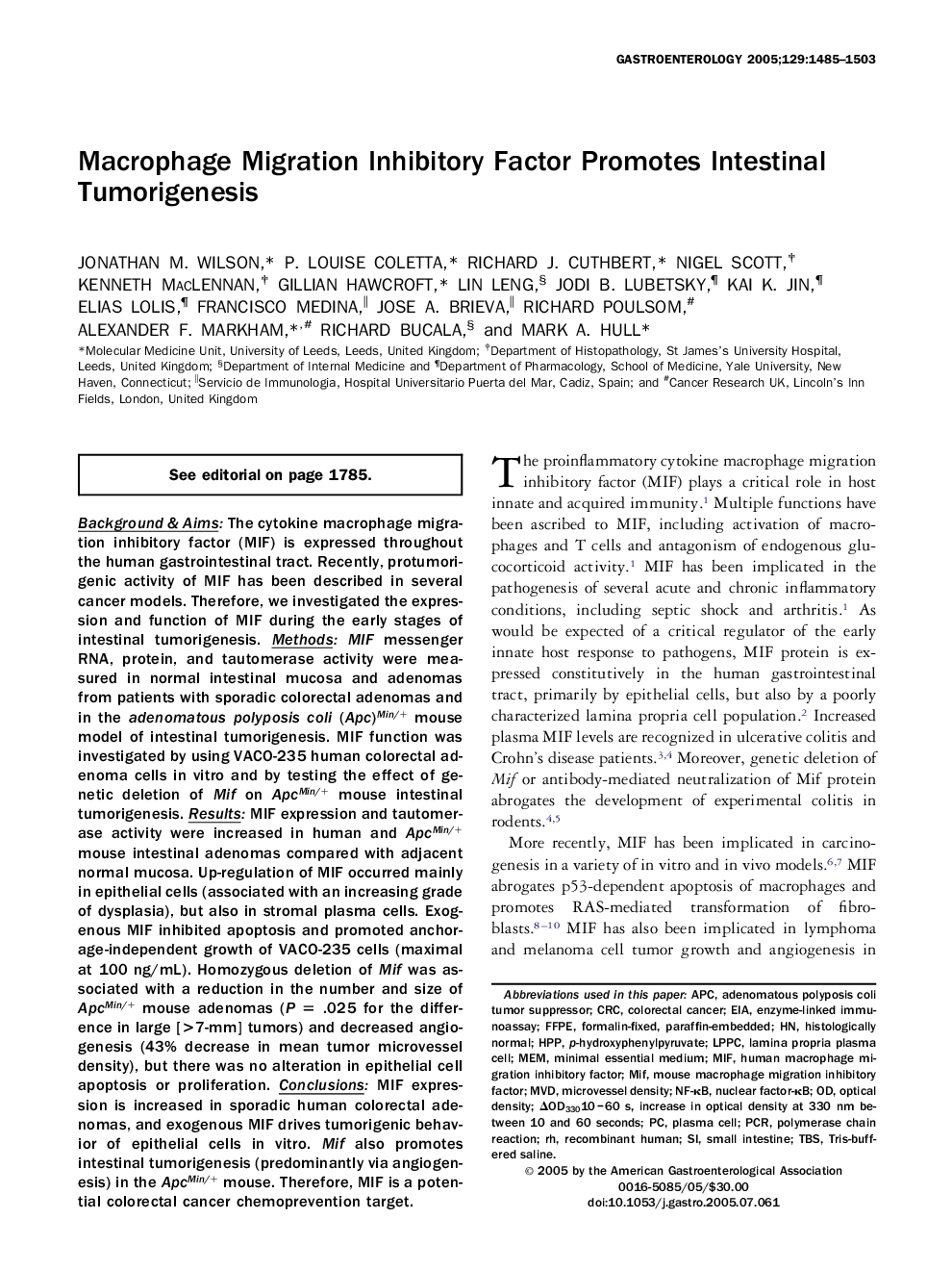| Article ID | Journal | Published Year | Pages | File Type |
|---|---|---|---|---|
| 9244065 | Gastroenterology | 2005 | 19 Pages |
Abstract
Background & Aims: The cytokine macrophage migration inhibitory factor (MIF) is expressed throughout the human gastrointestinal tract. Recently, protumorigenic activity of MIF has been described in several cancer models. Therefore, we investigated the expression and function of MIF during the early stages of intestinal tumorigenesis. Methods: MIF messenger RNA, protein, and tautomerase activity were measured in normal intestinal mucosa and adenomas from patients with sporadic colorectal adenomas and in the adenomatous polyposis coli (Apc)Min/+ mouse model of intestinal tumorigenesis. MIF function was investigated by using VACO-235 human colorectal adenoma cells in vitro and by testing the effect of genetic deletion of Mif on ApcMin/+ mouse intestinal tumorigenesis. Results: MIF expression and tautomerase activity were increased in human and ApcMin/+ mouse intestinal adenomas compared with adjacent normal mucosa. Up-regulation of MIF occurred mainly in epithelial cells (associated with an increasing grade of dysplasia), but also in stromal plasma cells. Exogenous MIF inhibited apoptosis and promoted anchorage-independent growth of VACO-235 cells (maximal at 100 ng/mL). Homozygous deletion of Mif was associated with a reduction in the number and size of ApcMin/+ mouse adenomas (P = .025 for the difference in large [>7-mm] tumors) and decreased angiogenesis (43% decrease in mean tumor microvessel density), but there was no alteration in epithelial cell apoptosis or proliferation. Conclusions: MIF expression is increased in sporadic human colorectal adenomas, and exogenous MIF drives tumorigenic behavior of epithelial cells in vitro. Mif also promotes intestinal tumorigenesis (predominantly via angiogenesis) in the ApcMin/+ mouse. Therefore, MIF is a potential colorectal cancer chemoprevention target.
Keywords
Related Topics
Health Sciences
Medicine and Dentistry
Gastroenterology
Authors
Jonathan M. Wilson, P. Louise Coletta, Richard J. Cuthbert, Nigel Scott, Kenneth MacLennan, Gillian Hawcroft, Lin Leng, Jodi B. Lubetsky, Kai K. Jin, Elias Lolis, Francisco Medina, Jose A. Brieva, Richard Poulsom, Alexander F. Markham, Richard Bucala,
